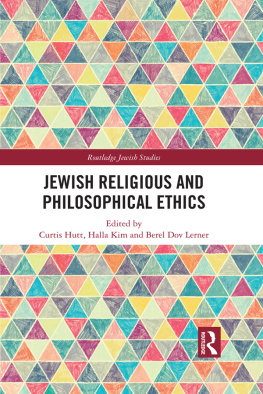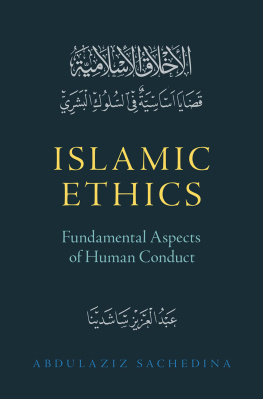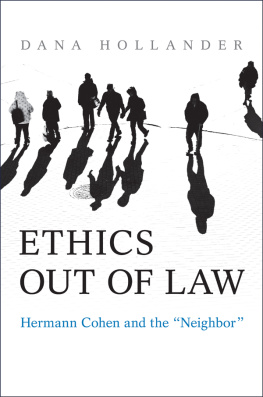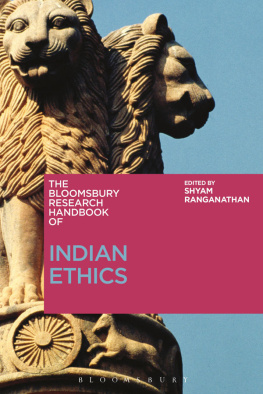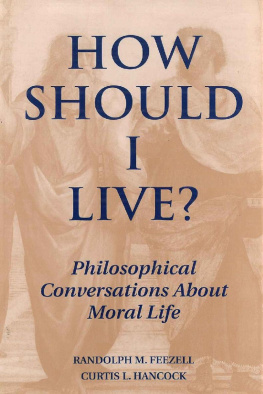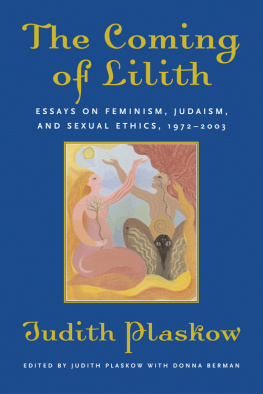First published 2018
by Routledge
2 Park Square, Milton Park, Abingdon, Oxon OX14 4RN
and by Routledge
711 Third Avenue, New York, NY 10017
Routledge is an imprint of the Taylor & Francis Group, an informa business
2018 Curtis Hutt, Halla Kim and Berel Dov Lerner
The right of Curtis Hutt, Halla Kim and Berel Dov Lerner to be identified as the authors of the editorial material, and of the authors for their individual chapters, has been asserted in accordance with sections 77 and 78 of the Copyright, Designs and Patents Act 1988.
All rights reserved. No part of this book may be reprinted or reproduced or utilised in any form or by any electronic, mechanical, or other means, now known or hereafter invented, including photocopying and recording, or in any information storage or retrieval system, without permission in writing from the publishers.
Trademark notice: Product or corporate names may be trademarks or registered trademarks, and are used only for identification and explanation without intent to infringe.
British Library Cataloguing-in-Publication Data
A catalogue record for this book is available from the British Library
Library of Congress Cataloging-in-Publication Data
Names: Hutt, Curtis, editor. | Kim, Halla, 1964editor. |
Lerner, Berel Dov, 1958editor.
Title: Jewish religious and philosophical ethics /
edited by Curtis Hutt, Halla Kim and Berel Dov Lerner.
Description: New York, NY : Routledge, [2018] | Series: Routledge
jewish studies series | Includes bibliographical references and index.
Identifiers: LCCN 2017030198 | ISBN 9781138230460 (hbk) |
ISBN 9781315385747 (ebk)
Subjects: LCSH: Jewish ethicsPhilosophy.
Classification: LCC BJ1285.2 .J495 2018 | DDC 296.3/6dc23
LC record available at https://lccn.loc.gov/2017030198
ISBN: 978-1-138-23046-0 (hbk)
ISBN: 978-1-315-38574-7 (ebk)
Typeset in Times New Roman
by Apex CoVantage, LLC

Some of the chapters contained in this volume were originally presented as papers at a symposium on Jewish Religious and Philosophical Ethics sponsored by the Schwalb Center for Israel and Jewish Studies at the University of Nebraska at Omaha in April 2013. We are saddened by the recent passing of the Schwalb Centers director, Dr. Moshe Gershovich of blessed memory, and we appreciate his support for this project and thank the Center for continuing that support. We also thank Karen Pollack for editorial assistance, the funding for which was provided by the Goldstein Supporting Foundation of the Jewish Federation of Omaha. Berel Dov Lerners work on this volume was partially supported by a Templeton Foundation Senior Research Fellowship at the Herzl Institute in Jerusalem.
Elisha S. Ancselovits is Senior Lecturer at the Pardes Institute of Jewish Studies as well as Senior Fellow at Emory University Center for the Study of Law and Religion, USA, Research Associate at Liverpool Hope Universitys Centre for War and Peace Studies, UK, and Postdoctoral Researcher in Jewish Education, The Hebrew University of Jerusalem, Israel.
Geoffrey Claussen is Associate Professor of Religious Studies and Lori and Eric Sklut Scholar in Jewish Studies at Elon University, USA.
Yakir Englander is a visiting scholar at Rutgers University, USA, and a Shalom Hartman Research Fellow.
Lenn E. Goodman is Professor of Philosophy and Andrew W. Mellon Professor in the Humanities at Vanderbilt University, USA.
Lewis R. Gordon is Professor of Philosophy at the University of Connecticut, USA.
Michah Gottlieb is Associate Professor of Hebrew and Judaic Studies at New York University, USA.
Laura Grams is Chair and Associate Professor of Philosophy at the University of Nebraska at Omaha, USA.
Curtis Hutt is Associate Professor of Religious Studies at the University of Nebraska at Omaha, USA.
Halla Kim is Professor of Philosophy at Sogang University, South Korea, as well as Professor of Philosophy and Jewish Studies at the University of Nebraska at Omaha, USA.
Berel Dov Lerner is Associate Professor of Philosophy at the Western Galilee College, Israel.
Eric S. Nelson is Associate Professor of Humanities at the Hong Kong University of Science and Technology.
Ari Schick is currently a Fellow-in-Residence at the Edmond J. Safra Center for Ethics at Harvard University.
Routledge Jewish Studies Series
Series Editor: Oliver Leaman
University of Kentucky
For a full list of titles in the series: www.routledge.com/middleeaststudies/series/JEWISH
Studies, which are interpreted to cover the disciplines of history, sociology, anthropology, culture, politics, philosophy, theology, religion, as they relate to Jewish affairs. The remit includes texts which have as their primary focus issues, ideas, personalities and events of relevance to Jews, Jewish life and the concepts which have characterised Jewish culture both in the past and today. The series is interested in receiving appropriate scripts or proposals.
Ethics and Suffering Since the Holocaust
Making Ethics First Philosophy in Levinas, Wiesel and Rubenstein
Ingrid L. Anderson
Abl-Barakt al-Baghdds Scientific Philosophy
The Kitb al-Mutabar
Moshe M. Pavlov
Abl-Barakt al-Baghdds Metaphysical Philosophy
The Kitb al-Mutabar
Moshe M. Pavlov
Contemporary Sephardic and Mizrahi Literature
A Diaspora
Edited by Dario Miccoli
Religious Studies and Rabbinics
A Conversation
Edited by Elizabeth Shanks Alexander and Beth A. Berkowitz
Jewish Religious and Philosophical Ethics
Edited by Curtis Hutt, Halla Kim and Berel Dov Lerner
The Bible and the Holy Poor
From the Tanakh to Les Misrables
David Aberbach
Violence and Messianism
Jewish Philosophy and the Great Conflicts of the Twentieth Century
Petar Bojani
Contents
PART I
Rabbinics
BEREL DOV LERNER
GEOFFREY CLAUSSEN
ELISHA S. ANCSELOVITS
PART II
Philosophy
LENN E. GOODMAN
MICHAH GOTTLIEB
HALLA KIM
LAURA GRAMS
ERIC S. NELSON
PART III
Contemporary challenges
ARI SCHICK
YAKIR ENGLANDER
LEWIS R. GORDON
CURTIS HUTT
Guide
Part I
Rabbinics
Part III
Contemporary challenges
7
Expressions of caring
Laura Grams
Martin Bubers philosophy has been influential across a range of disciplines including ethics, psychology, communication, sociology, religion, and education. I propose to reconsider valuable insights Buber offers, particularly in Ich und Du , for virtue ethics and feminist care ethics. As James Walters has argued, Martin Bubers relational philosophy is perhaps the most fertile seedbed in which feminisms ethics of care was nourished. Bubers explanation of relation, responsibility, and mutuality helps us understand ethical relations of respect and care, and indicates how we might develop virtues appropriate to encountering and listening to others. This inquiry may seem a bit misplaced insofar as Buber does not typically employ language or concepts familiar to virtue theory. In addition, from his account of the most important relations he carefully removes terms like feeling, empathy, and experience that are often considered vital in care or feminist ethics. Nevertheless, Bubers ideas about inclusion, mutuality, respect, love, and trust which could be fruitfully considered as relational virtues are crucial for these ethical theories because they illuminate how people might best care for one another as well as develop enduring ethical relationships. I argue that this is true even in cases that may appear most confounding, where Buber describes relations with trees, animals, or other humans encountered in silence.

